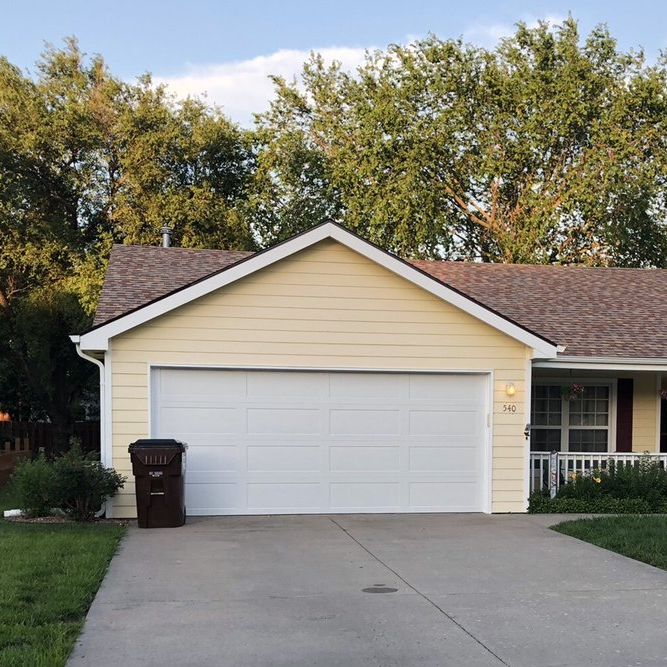The tension or tightness of a Springtown Gates & Garage Doors opener belt is an important factor that affects the performance and lifespan of the opener. A properly tensioned belt ensures smooth operation, minimizes wear and tear, and prevents issues such as slipping or excessive noise. Finding the right tension for a garage door opener belt involves following manufacturer recommendations, considering the type of belt drive, and observing the door’s movement.

Here’s a comprehensive guide to help you understand how tight a garage door belt should be:
Types of Garage Door Opener Belt Drives:
- Polyurethane Belt: This type of belt is durable, flexible, and often reinforced with steel cords. It requires minimal maintenance and is less likely to stretch or wear out over time.
- Rubber Belt: Rubber belts are less common but still used in some garage door openers. They are quieter than chain drives but may require more frequent maintenance.
Tension Guidelines for Garage Door Opener Belts:
- Follow Manufacturer’s Instructions: The best source of information for belt tension is the manufacturer’s instructions that come with your garage door opener. Manufacturers provide specific guidelines for belt tension, and it’s important to follow these recommendations to ensure optimal performance.
- Polyurethane Belts: Generally, polyurethane belts should be tensioned with a deflection of around 1/2 to 3/4 inch (12-19 mm) when applying light pressure to the belt’s midpoint. This deflection ensures proper tension without overloading the belt.
- Rubber Belts: Rubber belts might require slightly more tension than polyurethane belts. Again, refer to the manufacturer’s instructions for specific tension recommendations.
Tensioning Process for Garage Door Opener Belts:
- Release the Door: Ensure that the garage door is in the fully closed position and disconnect it from the opener by pulling the release cord.
- Belt Adjustment: Most garage door openers have an adjustment mechanism that allows you to increase or decrease belt tension. Consult the user manual to locate the adjustment point.
- Apply Tension: Using the appropriate tool, gently apply tension to the belt according to the manufacturer’s guidelines. Be cautious not to over-tighten, as this can strain the belt and cause premature wear.
- Check Deflection: Measure the deflection of the belt by applying light pressure to the midpoint of the belt. Use a ruler or tape measure to check how much the belt deflects. Aim for the recommended deflection range specified by the manufacturer.
- Test the Door: After adjusting the tension, operate the garage door opener to test its performance. The door should move smoothly without excessive noise or slipping.
Benefits of Proper Belt Tension:
- Smooth Operation: Properly tensioned belts ensure smooth and consistent movement of the garage door.
- Longevity: Correct tension prevents premature wear on the belt, prolonging its lifespan.
- Reduced Noise: Proper tension reduces the chances of the belt slipping or vibrating, resulting in quieter operation.
Professional Assistance:
If you’re unsure about adjusting the tension of your garage door opener belt or if you encounter any difficulties, it’s recommended to seek professional assistance. Garage door technicians have experience in adjusting belts and ensuring that the tension is set correctly.
Conclusion:
The correct tension for a Springtown Gates & Garage Doors opener belt is determined by the manufacturer’s recommendations and the specific type of belt drive. Properly tensioned belts ensure smooth operation, reduce wear and tear, and prevent issues like slipping or excessive noise. Following the manufacturer’s guidelines and testing the door’s movement after adjustments will help you achieve the right tension for your garage door opener belt. If you’re unsure or inexperienced, consider consulting a professional garage door technician to ensure optimal performance and safety.
Springtown Gates & Garage Doors
104 Adalida Ln, Springtown, TX 76082, United States
1-817-631-1036
